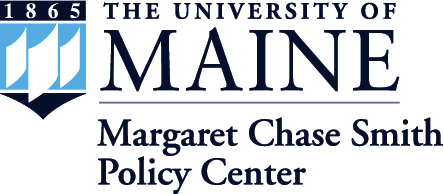Abstract
The COVID-19 pandemic has stricken American workers deeply, causing widespread layoffs and accelerating the longer-term disappearance of jobs available to workers with limited skills and education. As a result, its impact has exacerbated inequalities of income and opportunity. A long-term strategy for postpandemic economic development in Maine will require building bridges from existing skill sets to jobs offering greater employment opportunity and security. Maine can take advantage of the COVID-19 crisis to restructure the institutional environment in ways that will align the incentives of the public and private sectors and will achieve these goals.
First page
116
Last page
125
Rights and Access Note
This Item is protected by copyright and/or related rights. You are free to use this Item in any way that is permitted by the copyright and related rights legislation that applies to your use. In addition, no permission is required from the rights-holder(s) for non-commercial uses. For other uses you need to obtain permission from the rights-holder(s).
DOI
https://doi.org/10.53558/vhcd4408
Recommended Citation
Remington, Thomas. "Inequality and Workforce Development in Maine in the Post-COVID-19 Environment." Maine Policy Review 30.2 (2021) : 116 -125, https://digitalcommons.library.umaine.edu/mpr/vol30/iss2/17.
Creative Commons License

This work is licensed under a Creative Commons Attribution-NonCommercial-No Derivative Works 4.0 International License.
